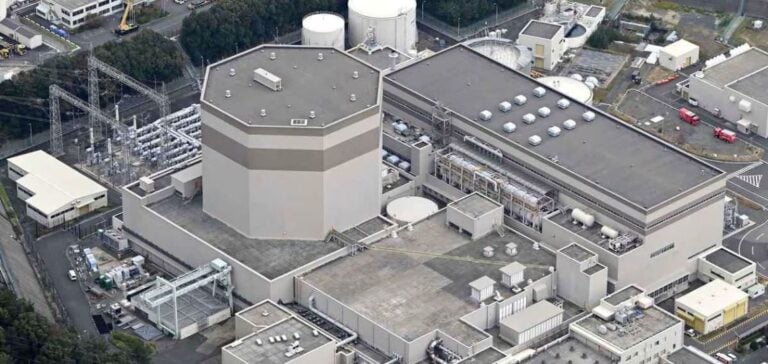Japan’s Nuclear Regulation Authority (NRA) recently summoned Mamoru Muramatsu, President of Japan Atomic Power Co (JAPC), to discuss non-conformities at the Tsuruga-2 reactor.
This 1,160 MW reactor, located in Fukui prefecture, has been facing regulatory challenges for several years, mainly due to the presence of a seismic fault beneath the site.
The NRA’s main concern lies in a seismic fault, designated code K, located beneath the Tsuruga-2 reactor building.
Japanese regulations, tightened since the Fukushima accident, require that critical structures, including nuclear reactors, not be built on active seismic faults that have recorded earthquakes over the past 130,000 years.
JAPC submitted data suggesting that the K fault has been inactive for over 130,000 years, but these arguments were not enough to convince regulators.
In addition to seismic concerns, the Tsuruga-2 review process was delayed by errors in the documentation provided by JAPC.
In 2020, the NRA suspended the overhaul after discovering more than 1,000 errors in the safety documentation submitted by JAPC.
This suspension was lifted in December 2022, but JAPC was forced to correct and resubmit its documentation by August 31, 2023.
Impact on energy policy
The NRA’s decision not to recommend the restart of Tsuruga-2 could have a significant impact on Japan’s energy policy.
The Japanese government sees nuclear power as an essential component of its decarbonization strategy, enshrined in the Green Transformation Policy.
However, this strategy relies on strict safety guarantees provided by the NRA.
Outlook for JAPC
In response to the NRA’s recommendation, JAPC has announced its intention to continue its efforts to restart Tsuruga-2, undertaking further research and strengthening its evidence base.
However, the road to compliance remains fraught with difficulties, not least due to stringent seismic safety requirements and a history of faulty documentation.
The Tsuruga-2 situation highlights the challenges Japan faces in its quest to balance nuclear safety and decarbonization goals.
The NRA’s final decision on Tsuruga-2 could set an important precedent for the Japanese nuclear industry, influencing future risk management and regulatory compliance strategies.
JAPC will have to navigate carefully between regulatory requirements and political imperatives to ensure the viability of its project.






















